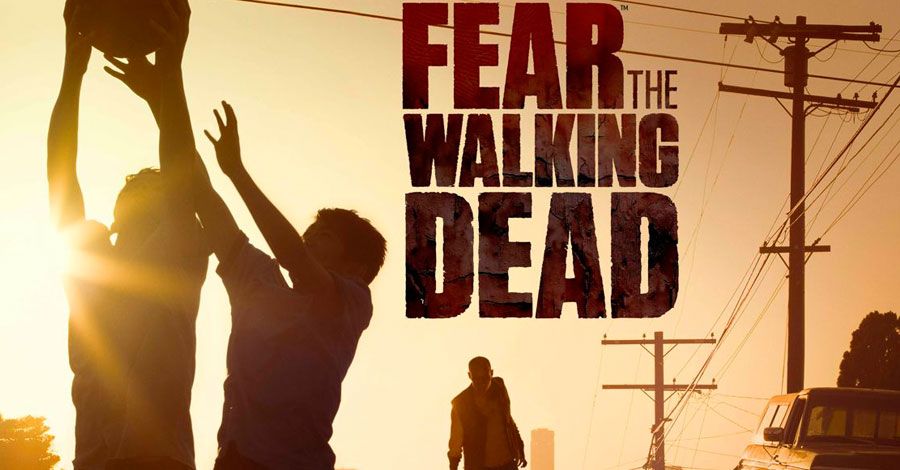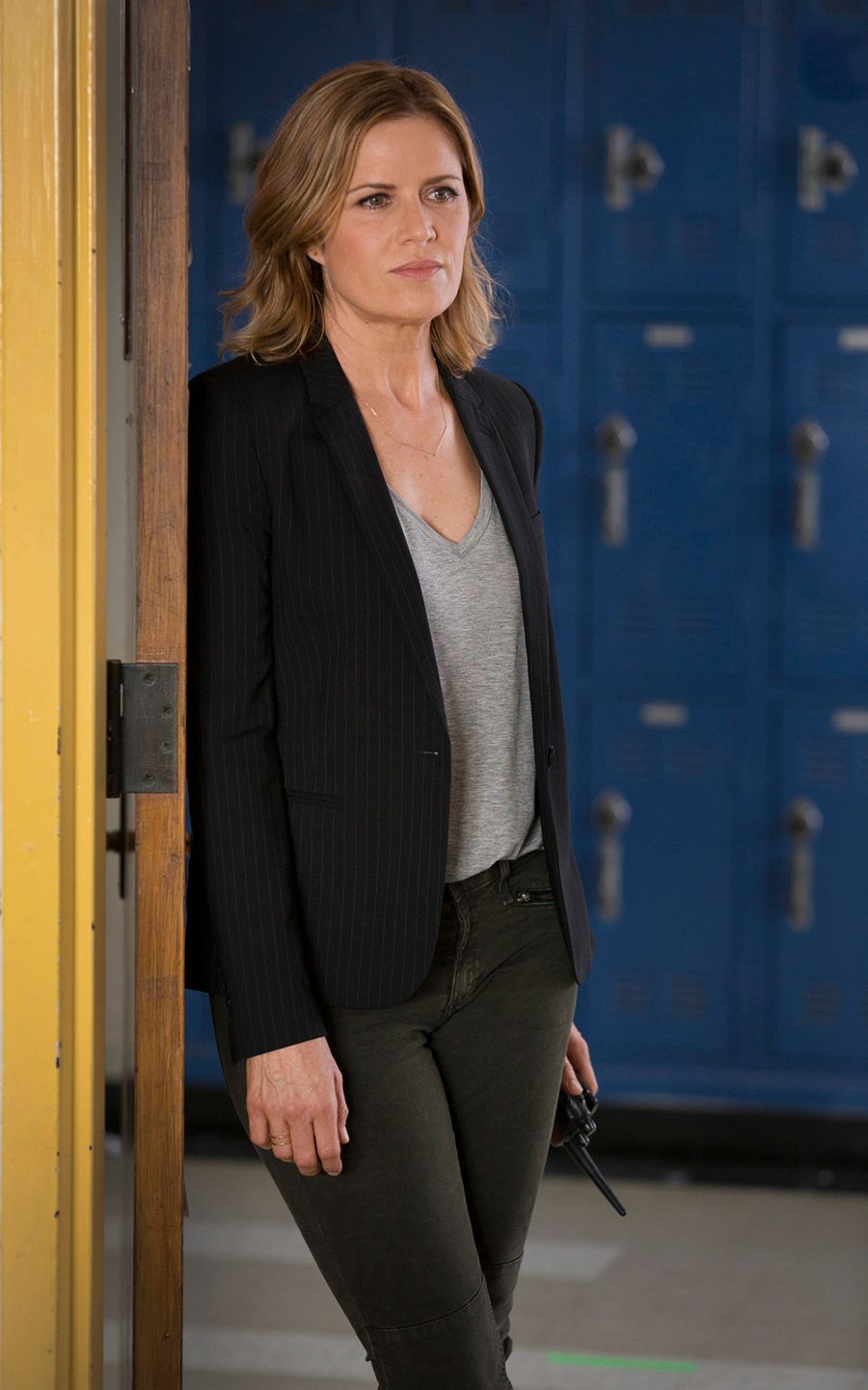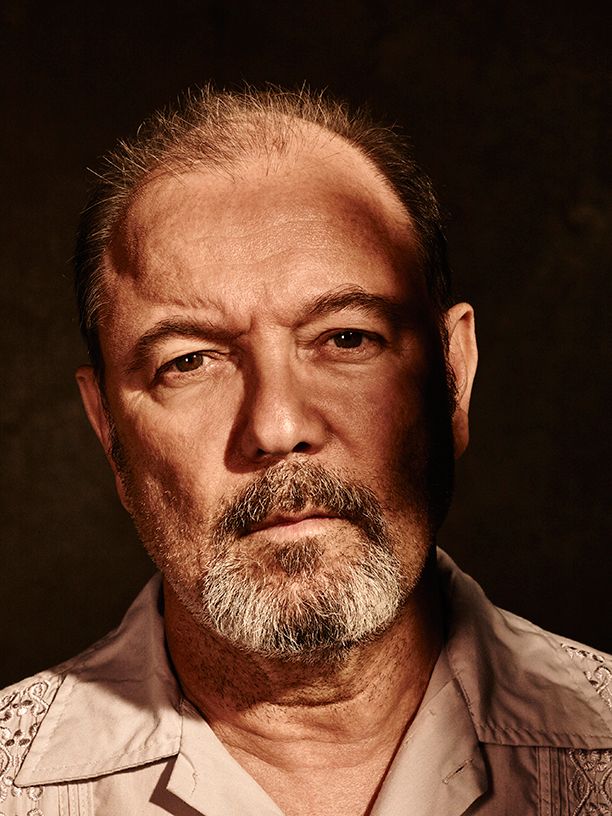Although it's a safe assumption that the zombie-plagued world of "The Walking Dead" is much larger than the story's primary setting and characters, not much is known about the origins of the "walkers," let alone how the rest of the world changed in the wake of throngs of reanimated corpses devouring and/or infecting the living. Even the Image Comics/Skybound Entertainment comic series created by Robert Kirkman -- which debuted seven years before the AMC show -- has kept the action confined to the American South and offered little, if any, reasons for how and why society fell apart.
That is all about to change this Sunday, with the premiere of AMC's "Fear the Walking Dead."
While both shows take place in the same world and both sets of characters face similar challenges, the cast and crew talking to reporters at this year's Comic-Con International in San Diego were quick to point out that FTWD is far from a spinoff.
"We didn't want to do 'CSI,'" series co-creator Greg Nicotero said. "We didn't want to do a cookie cutter show that was the exact same thing. Rick, Daryl and Michonne -- they're larger than life characters. We took a slice of that universe. We wanted [these characters] to be real characters that were grounded. They're your neighbor, they're your friend. There's an entire world of stories of how people survived. I think the one common thread is what happens to people as society changes. As society unravels, who do you become? We explore that in 'The Walking Dead' [but] that's really an important theme in our show."
Setting is one of the elements series creators are using to emphasize the difference between "FWTD" and its parent series. Not only does the story begin in the early stages of the outbreak of the zombie virus -- and, according to series producers, Season One will not end at the beginning of the original series' timeline -- it takes place in East Los Angeles. "We wanted to do something different from the Mother Ship," Executive Producer Dave Erickson said, "and LA is a place of re-invention. We have a lot of people who've done things they're not proud of."
One of those people is Nick Clark (Frank Dillane, who played Tom Riddle in "Harry Potter and the Half-Blood Prince"). In the beginning, Nick is a typical "mixed up kid." His father died six years ago. He's an addict. When he does stay at home, his mother's boyfriend is living there, and though his family does its best to help him, he's not such a lovable person. However, Dillane feels his character has to start at rock bottom in order to build himself back up. Erickson agrees: "For Nick, things that serve him in the apocalypse may not work in the real world."
Though family is an important aspect to both series, the relationships in FTWD aim to be more complex than the strong family ties in TWD. Nick's demons are just one of his family's pre-apocalypse problems. In addition to being a widow with an addict son, Nick's mother Madison (Kim Dickens of "Deadwood" fame) is a high school administrator during what appears to be a serious flu epidemic. Her overachieving daughter, Alicia (Alysia Debnam-Cary), wants nothing more than to be as far away from her family as possible. Even taken out of the context of a genre show about zombies, the relationships are uncharacteristically intimate and would be the stuff of a great family drama.
Even more complex is the life of of Travis Manawa, played by veteran character actor Cliff Curtis. As Madison Clark's live-in boyfriend and co-worker, he not only has problems that come with being part of a blended, multiracial household dealing with addiction and isolation issues, but trying to be a good father to his son from a previous marriage is also going similarly "well." And on top of the drama that naturally comes with being a teacher, he too is dealing with what he thinks is a flu outbreak. It was the complexity of the character relationships in the pilot that drew Curtis to the role: "I don't necessarily understand the world of genre. It's not my habitat as an artist. But I do understand relationships and the value of love and what we'll do for love. The show is firmly grounded in that. Not just romantic love but the love of our children."
Travis's other family is not without its problems as well. When asked about his character, Chris Manawa, actor Lorenzo James Henrie said, "His parents got a divorce three years ago. His father was once a person that he looked up to and a man he looked to become like. Now that [Chris's parents] got this divorce, it shattered his ideals of who he wants to be as a man. Now he's trying to become a grown man. Does he listen to his dad?"
Fortunately for Travis, Chris's mother, Liza, played by Elizabeth Rodriguez -- now pulling double duty on two shows, along with the Netflix hit "Orange Is The New Black" -- is more concerned with protecting her son than creating drama. To her, the relationship between the adults is sometimes tense, but overall amicable: "As a parent in the show, I have absolute sympathy for Madison. There's moments of awkwardness. But there's no time because there's a bigger problem."
Rounding out the series' core cast is the Salazar family: Daniel (actor and musician Ruben Blades), his wife Griselda (Patricia Reyes Spindola) and his daughter, Ofelia (Mercedes Mason). A barber who immigrated to provide a better life for his wife, Daniel has issues trusting people outside the Latino community of East LA, something only made greater by the onset of the zombie apocalypse and the ensuing chaos. According to Blades, "Events happen that force [Daniel] to revisit a past he tried to get away from."
But what of the zombies themselves? As far as behavior is concerned, Executive Producer Gale Anne Hurd assured that they will be the same slow, shambling ghouls we know and love from TWD. However, because of the original show's timeline beginning several weeks, if not months, into the plague and collapse of society, many of the "walkers" are generally in a more advanced state of decay. For Nicotero, who created the makeup effects for both shows, "...this is an entirely different feel. You have to be in a room with 12 people and any one of them could be infected and you wouldn't notice it. So we actually pulled back on the makeup in the first couple episodes because you wouldn't draw too much attention to it. It was important to distinguish our show from that world."
In addition to a new set of characters, pre-decomposed zombies and a new setting, the style of FTWD will be markedly different from its parent program. "The Walking Dead" is shot with mostly conventional camera equipment and techniques. Though not as dangerous, the contemporary world is itself chaotic. To that end, faux news and camcorder footage, as well as cell phone video, will be incorporated with traditional camera setups to create a more frenetic, documentary style as society falls apart. After all, when the story begins, these media still exist. As Gale Anne Hurd put it, "That's how you'd find out! Come on!"
The fun for the cast and crew, and hopefully the audience, is in seeing an entirely different aspect of a now familiar world. As an adaption of a comic series, "The Walking Dead" still has a bit of a "road map" to follow, even if what happens in the show has diverged from the events in the comic. So as challenging as it may be, exploring uncharted territory is what drives the new series' cast. Mason summed it up best when she said, "When you have a comic to base it on, you kind of know where it's heading in a general direction. You kind of know when a character is coming or going and whether or not they're good or bad. We get to create that. So as exciting as it is to have a blue book, I love the fact that I'm just as surprised."
At the end of the day, "Fear the Walking Dead's" success will boil down to whether or not it achieves its mission statement of creating a completely original narrative within an established world that stays true to the essence of the source material and resonates with fans. Not an easy job. The key, to Executive Producer David Alpert, is in acknowledging that what goes on in "The Walking Dead" is still shocking but no longer surprising, and working with that: "We know that you know. We're aware of that when we're writing... but the characters don't get it." Still, early indications for success are good. Like "Better Call Saul," another AMC series that successfully avoided the dreaded "spinoff" label, "Fear the Walking Dead" has already received a green-light for a second season.
"Fear the Walking Dead" premieres this Sunday, Aug. 23, on AMC.




